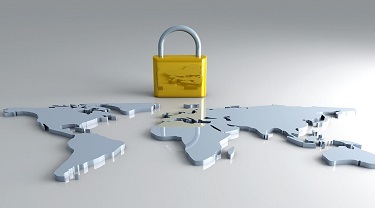How to prevent intellectual property infringement on your company
Intellectual property (IP) can be one of your company’s most valuable assets. But intellectual property protection can be limited by geographical borders. Do you have a registered trademark, own copyright, hold a patent or have trade secrets? How will you protect your IP once you decide to sell outside of Canada?
Create a winning strategy to prevent IP infringement in other countries by asking the right questions:
Know the market value of your unique service or product. Where does your IP fit into that?
Where does IP fit into your business strategy? Having IP protections can be good. But they don’t guarantee sales success.
Consider limitations of intellectual property protection, says Michael Geist, a University of Ottawa law professor and the Canadian Research Chair in Internet and e-Commerce Law.
“Part of it is assessing what you’re selling, and how dependent on it you are from an IP perspective,” Geist says.
In some cases, as with copyright, your intellectual property rights may extend outside of Canada. In others, that’s not the case. You may be a patent owner in Canada. But others may hold the patent for something similar elsewhere.
“You want to engage in an assessment of what types of intellectual property protection there are in this new jurisdiction,” says Geist.
“Check to see if [Canada has] a trade agreement [with this country]. [T]here may well be some IP provisions that, at a minimum, require meeting those same international standards,” he adds.
Foreign IP offices have websites to help. Start by determining if your IP protection conflicts or with another’s IP rights in that country.
Professional advisors can help you find partners to get the most out of your intellectual property locally.
There are international systems that allow you to apply for protection in many countries at the same time.
You should also check out
Learn the basics of intellectual property and how to develop a strategy to protect it when selling internationally
Canadian businesses selling outside the country often look to local partners to help them be more competitive.
Intellectual property licensing arrangements are a common way to promote your product or service internationally. The IP owner (licensor) grants one or more local companies or individuals (the licensees) the right to use the IP. Normally this is in exchange for a payment, typically a royalty. Under the licence, rights may be exclusive or non-exclusive, and territorially or time specific.
Before you enter into a licence agreement make sure you have intellectual property rights in that country and that they are valid and enforceable.
Any legal agreements with distributors, licensees, manufacturers or partners in other countries should address IP rights.
You may need to pay for professional advice, registration costs and legal fees.
Do you have money to pay legal fees? How will that affect your business operations?
“You’ll want to develop a strategy that looks at under what circumstances you’d try to enforce those rights and how you’d go about doing that,” Geist says.
You should also check out
Protecting your intellectual property is crucial when executing an international expansion plan.
IP rights don’t guarantee there is no intellectual property violation. Others may still copy your copyrighted material, use your trademark, or breach your patents.
Many countries have mechanisms to help businesses respond to a breach.
“Canada has recently implemented an IP border-enforcement regime that allows customs to detain goods suspected of being counterfeit at the border,” says anti-counterfeit lawyer and Kestenberg Siegal Lipkus LLP partner Georgina Starkman Danzig. “Companies can now file a form with customs listing their copyright rights, any registered trademarks and geographical indication rights they own and wish to protect. The best part is that there is no fee to file this form, it’s good for two years and can be renewed. The system isn’t perfect, but I believe every company with intellectual property rights in Canada should be taking advantage of this new legislation.”
This could be as simple as monitoring social media sites like Twitter and Facebook to make sure your trademark isn’t misused. For counterfeits or online trolling, you may need an auditor or other expert help.
“Rights holders are responsible for protecting their intellectual property, which necessitates that they monitor both the internal and external use of their IP,” says Starkman Danzig.
“Online counterfeiting, piracy, domain abuse and fraud, can have a devastating impact on your brand and your bottom line,” she says. “Effective monitoring, in-house or by third-party service providers, can assist you in understanding your problem, quantifying your losses, and with the right information, recapturing your revenue.”
“Are we doing everything we can to ensure we keep our trade secrets confidential?” asks Starkman Danzig. “Have we limited access to the information to key employees? Are the people with access subject to non-disclosure and confidentiality agreements?”







